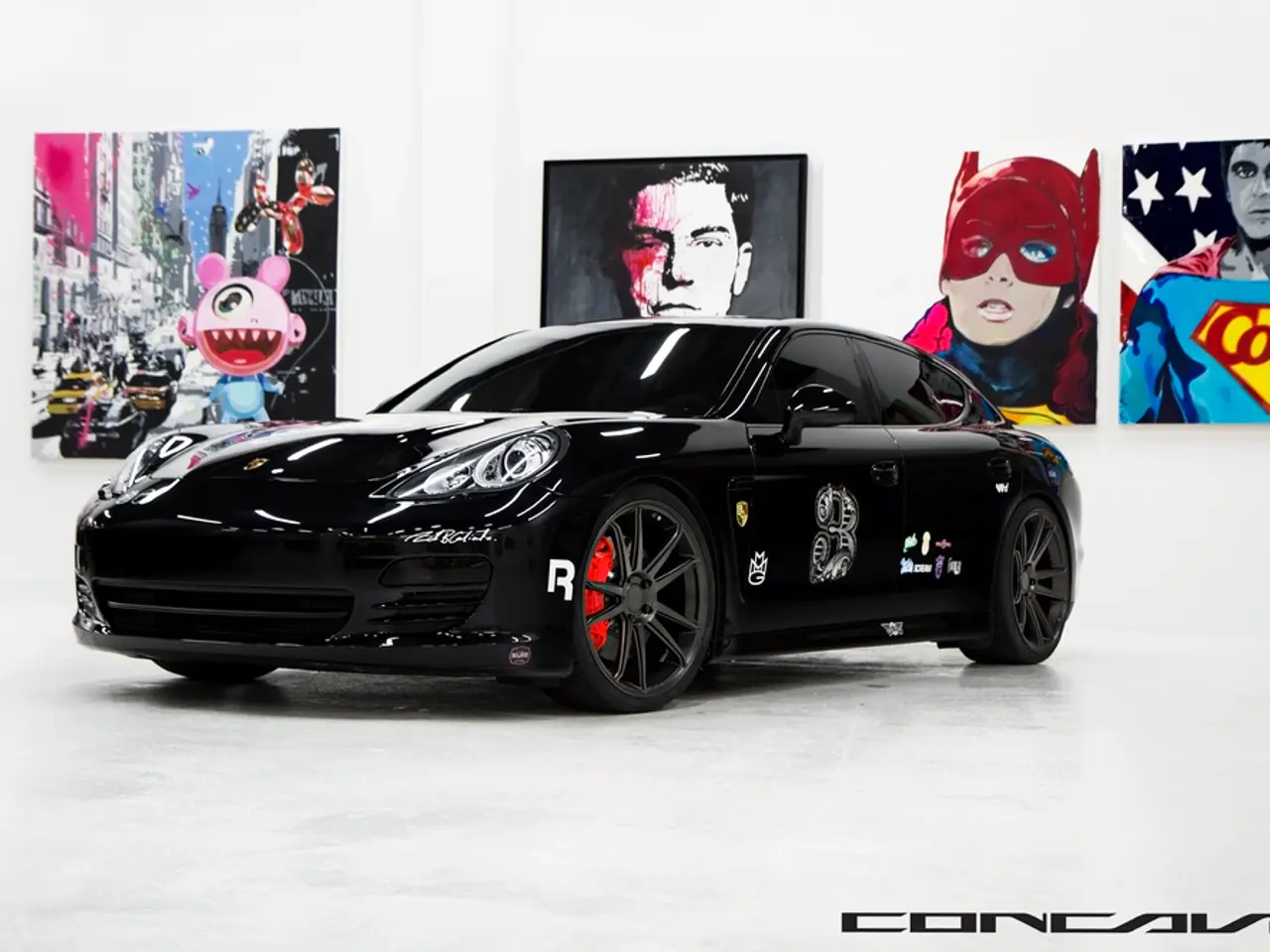China's collaborative car manufacturing ventures with foreign companies are diminishing in appeal due to the rising tide of electric vehicles (EVs)
In the dynamic world of automotive manufacturing, China's auto industry has seen some significant changes recently. Several joint ventures between global automakers and Chinese partners have faced challenges, leading to bankruptcy filings, ceased operations, and partnership dissolutions.
GAC Mitsubishi Motors, a joint venture between GAC, Mitsubishi Motors, and Mitsubishi Corporation, has ceased operations. The owners of GAC Mitsubishi Motors sold their stakes to GAC for RMB 1 each, marking the end of the venture. The group's loss was attributed to the substantial decline of investment income caused by the weakening profitability of major joint venture brands, according to an analyst at BOCI Research.
Stellantis, a Euro-American automotive group, withdrew from its 50-50 Chinese venture, GAC Fiat Chrysler Automobiles, citing a breach of trust by GAC, a claim that GAC denies. This move sparked rare open criticism by a foreign player of its Chinese state-owned partner.
Another significant development came from Groupe Renault, whose joint venture with Brilliance China Automotive Holdings filed for bankruptcy at the end of 2021. The restructuring process is ongoing. Groupe Renault also dissolved another key partnership in China with Dongfeng in April 2020.
Dongfeng Motor Group, a Hong Kong-listed arm of state-owned Dongfeng Motor Corp., reported a net loss of RMB 3.99 billion (USD 564 million) for last year. This is the first net loss for Dongfeng Motor Group since it went public in 2005. The net loss was due to a substantial decline in the performance of two 50-50 joint ventures with Honda Motor and Nissan Motor. Dongfeng's success in the past was largely due to a unique financial structure that enhanced its bottom line through profit contributions from equity-method accounting.
SAIC Motor, another major player in China's auto industry, has also been affected. SAIC President Wang Xiaoqiu stated that SAIC Group is undergoing transformation. The venture between SAIC and Honda saw a 21.5% drop in sales volume, while Dongfeng Honda's sales fell 8.5%.
Despite these challenges, some joint ventures continue to thrive. SAIC Motor has been supported by international partners such as Volkswagen and General Motors in their vehicle production through joint ventures; Volkswagen operates 33 vehicle plants in China with local partners including SAIC. However, specific years when SAIC took majority stakes in these joint ventures are not detailed in the search results.
In a positive note, Geely Automobile Holdings' net profit last year was virtually flat at RMB 5.3 billion (USD 749.1 million), although without a one-off gain from the 2022 acquisition of 34% of Renault Korea, the profit rose 51%.
A turning point for Dongfeng was a drastic restructuring effort in 2002 that pulled in Nissan, led by Carlos Ghosn, which rejuvenated the ailing enterprise. Stellantis decided to maintain another 50-50 framework with Dongfeng, but Dongfeng sold about half its shares in Stellantis for EUR 934 million last November.
These developments highlight the complexities and challenges faced by foreign automakers in China, where partnerships with state-owned companies have been a requirement since China's reform and opening up in the early 1980s. As the industry evolves, it will be interesting to see how these partnerships adapt and what the future holds for China's auto industry.
Read also:
- Leg Vein Clot Treatment, Post-treatment Care, and Preventive Measures
- Modern Storage Solutions in Mini-Photovoltaic Systems: Pushing Beyond the 800-watt Technical Barrier with the EcoFlow Stream Ultra
- Redesigned Tesla Model Y Performance Debuts in Europe markets
- Air Canada's intention is to enforce a lockout of its flight attendants, resulting in the cancellation of all flights, effective from this weekend.








